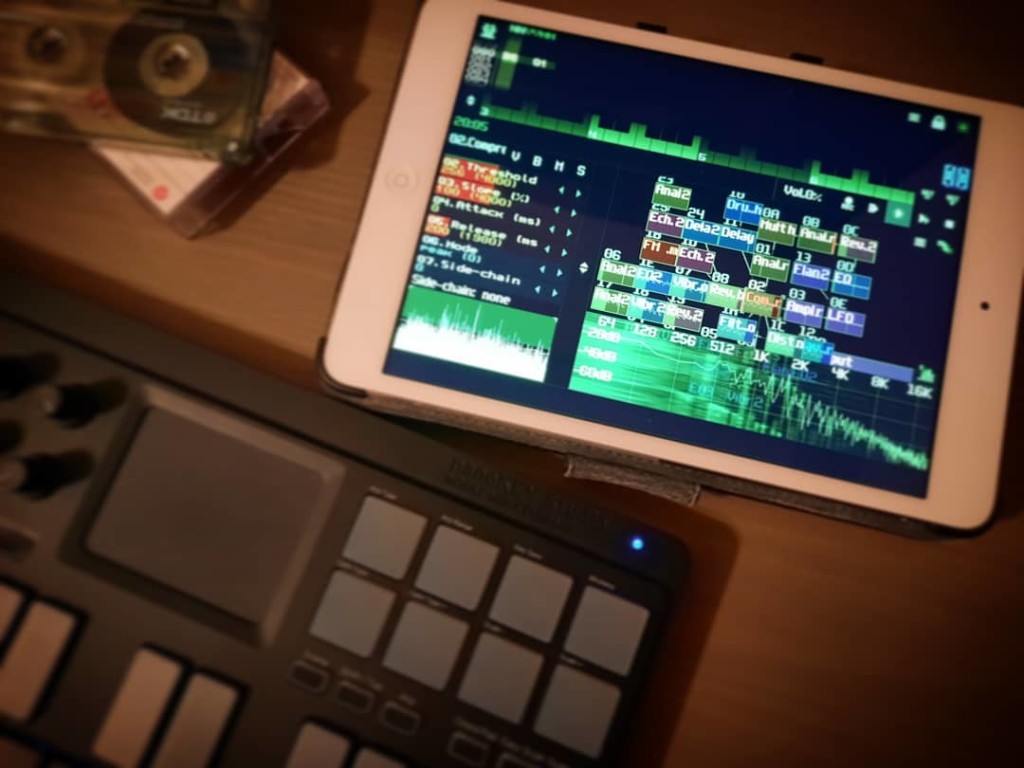SunVox 1.9.6 is here, with a pitch detection module, envelope generator, new harmonics features, an AUv3 on iOS, and lots more. It’s a full modular synth and creation environment as donationware or a few dollars on mobile. And it runs on almost everything. So yeah – you can afford it.
We’ve been watching 1.9.6 since its beta. It’s what other software vendors would clearly call SunVox Pro 9.0, but it’s … just 1.9.6. And on a lot of platforms, you can download it for free (though you can and should donate a few bucks), or you can grab it on Android and iOS for a low price.
It’s weird. It’s unique. It’s a modular, but also a tracker. It’s a synth, but also a DAW. And here’s what’s new:
- sound engine optimization
- new module – Pitch Detector for detecting the pitch of the incoming signal; the frequency and note will be displayed; notes will be sent to the module output
- new module – ADSR envelope generator
- new module – Ctl2Note for converting the controller value into a note (input – automation; output – notes)
- Analog Generator: new waveform “harmonics” allows you to draw the harmonic distribution
- SpectraVoice: new harmonic types: overtones1+, overtones2+, overtones3+, overtones4+, metal

That’s not all. There are new LFO features, a whole bunch of patchable MultiSynth options, other Pitch shifter details, improved pop-ups, a folder full of curves, pattern effects, timeline keyboard shortcuts (though you do have to dig in and assign them), and extra examples and modules including the winners of a SunVox composition contest in February.
If you’re on iOS, you can now use the AUv3 plug-in version as a filter inside other DAWs, too. That’s on top of a bunch of Android and iOS features from the start of the year, including the debut of AUv3 instrument support, USB MIDI on Android, and other additions.
But part of the joy of SunVox is, it doesn’t matter what hardware you’ve got. There’s even a Linux version. There’s even Windows CE.
Check my run-down of some of the banner 1.9.6 features from last month:
Listen to the beautiful music made earlier this year:
Pixilang users, Sasha promises an update to that, too soon, so that it syncs up with the new SunVox engine. Pixilang is an artist-friendly coding language focused on Pixels, and it works with SunVox – see the code documentation for details.
Scroll through this for even more:
https://warmplace.ru/soft/sunvox/changelog.txt
And go grab the software:
https://warmplace.ru/soft/sunvox/